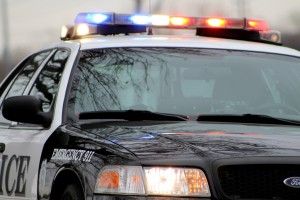CA government turns on traffic court rules
by James Poulos | May 25, 2015 5:46 pm
 [1]In a matter of weeks, all three branches of California government have turned against the state’s widespread traffic violations bureaucracy. The system, which subjects rich and poor alike to spiraling penalties, fees and surcharges, has come to symbolize both the hidden costs of lower-income life and the inefficiency of regulations hiding in plain sight.
[1]In a matter of weeks, all three branches of California government have turned against the state’s widespread traffic violations bureaucracy. The system, which subjects rich and poor alike to spiraling penalties, fees and surcharges, has come to symbolize both the hidden costs of lower-income life and the inefficiency of regulations hiding in plain sight.
Amnesty proposed
Leading the charge, Gov. Jerry Brown made instant headlines with his withering criticism of the current system. “Calling California’s traffic court system a ‘hellhole of desperation’ for the poor, Gov. Jerry Brown is proposing an amnesty program for residents who can’t afford to pay off spiraling fines and penalties that have resulted in 4.8 million driver’s license suspensions since 2006,” the Associated Press observed[2].
According to the terms of the amnesty, “drivers with lesser infractions would pay half of what they owe, and administrative fees would be slashed from $300 to $50,” according to the AP.
For Brown, the move represented yet another step toward broader reform of California’s justice system. The task was largely pushed onto his office by the U.S. Supreme Court, which has ruled strictly against California on the issue of prison overcrowding, and by a long series of scandals and incidents involving police misconduct and wrongful use of force.
A Brown spokesman conveyed to the AP that the governor’s amnesty plan was considered a response to a “a civil rights issue,” with discussions ongoing between the governor’s office and the U.S. Department of Justice. “It’s not clear if the Justice Department has launched an inquiry into California’s court system,” the AP added.
New legislation
In the Legislature, meanwhile, two bills aiming to bring relief to overburdened traffic violators have begun to advance. Senate Bill 405, introduced by state Sen. Robert Hertzberg, D-Van Nuys, would extend an amnesty similar to Brown’s. The bill “would restore a driver’s license if it was suspended for nonviolent offenses and if the driver agrees to a court-ordered debt collection program,” according[3] to Capitol Weekly, working “in conjunction with Brown’s proposed Traffic Amnesty Program, which seeks to collect at least some of the estimated $10 billion in uncollected, court-ordered debt.”
As KCRA reported[4], most of that money comes from “unpaid traffic fines and fees.” In an effort to make up some of the lost revenue, a separate bill introduced by Assemblyman Miguel Santiago, D-Los Angeles, would authorize installment plans for drivers socked with pricey parking tickets.
But the issue forced by Hertzberg’s bill concerned the basic legitimacy of leaning so heavily for revenue on the ticketing system. “Hoping to slash court-ordered debt by some 80 percent,” Hertzberg told[5] CBS Sacramento, he “can’t worry about” the hit to local budgets his proposed reform would entail. “Is this how we are going to fund the government?” Hertzberg asked rhetorically. “Our job is to get it right.”
Judicial pressure
Rounding out the unified front against Golden State ticketing, California’s Chief Justice recently called for “an emergency stop” to the practice of imposing charges before drivers can secure a hearing, as ABC 7 News noted[6]. In so doing, Chief Justice Tani Cantil-Sakauye has asked the state’s judicial council to “create a new rule that will give drivers a way to plead their case before having to pay a fine.”
That drew cheers from the ACLU, which had been peppering[7] Northern California counties with so-called reminders that “a person’s right to appear in court – even traffic court – should not depend on their ability to pay a fee.” As the ACLU noted in a release, Chief Justice Cantil-Sakauye “is also appointing a commission to take a broader look at the impact of fines, fees, and penalties on court users in California. This is an important step forward, because California counties have a history of using court fees and fines to pay for basic government functions.”
Although the impact of the turn against California’s ticketing bureaucracy has yet to be felt on state streets, no serious opposition to any of the proposed measures has been mounted.
- [Image]: http://calwatchdog.com/wp-content/uploads/2015/05/Police-car.jpg
- observed: http://hosted.ap.org/dynamic/stories/U/US_TRAFFIC_FINE_AMNESTY?SITE=AP&SECTION=HOME&TEMPLATE=DEFAULT&CTIME=2015-05-23-11-57-14
- according: http://capitolweekly.net/amnesty-fines-traffic-budget-brown-ticket4/
- reported: http://www.kcra.com/news/local-news/news-sacramento/california-legislators-look-for-ways-to-recover-more-unpaid-traffic-debts/32807266
- told: http://sacramento.cbslocal.com/2015/05/21/california-state-senator-wants-to-take-bite-out-of-traffic-ticket-fees/
- noted: http://abc7.com/politics/ca-chief-justice-wants-to-stop-huge-fines-for-traffic-tickets/736500/
- peppering: https://www.aclunc.org/blog/ca-chief-justice-agrees-traffic-courts-can-t-charge-fees-advance-trial
Source URL: https://calwatchdog.com/2015/05/25/ca-government-turns-traffic-court-rules/